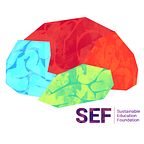Meet Sri Lankan Researcher- Sumudu Mallawaarachchi
What are you currently working on or worked on before?
I’m currently completing my Ph.D. exploring problematic mobile touch screen device use and its impact on child development in toddlers and preschool children. I am also working as a Research Assistant for a Clinical trial investigating the effectiveness of low-dose ketamine as a treatment for depression in young people at Orygen, Centre for Youth Mental Health.
I have previously worked as Research Assistant at Orygen on several other research projects in clinical populations such as borderline personality disorder and first-episode psychosis. I have also worked as a teaching associate/tutor for 1st-year Undergraduate psychology at the University of Melbourne for 2 years prior to starting my Ph.D.
You can find my publications regard my work here.
What encouraged you to pursue your research topic?
I have enjoyed Psychology ever since I took it up as an A level subject in school. After starting my undergraduate studies, I realized the broad and diverse prospects that are available through studying psychology. I had always wanted to pursue a career in teaching and research which further motivated me to explore the various areas in psychology throughout my undergraduate years.
I eventually discovered several research topics that had apparent gaps in past research and I found them to be very stimulating and interesting to work on a more regular long-term basis. With the guidance from my supervisors, it became pretty clear what topics I wanted to be involved in. I particularly believe in the concept of ‘early intervention’ and am thus, involved in research in children and young people.
Where do you find your best inspiration for your work?
My supervisors and fellow researchers working at the University certainly inspire me with their groundbreaking research, work ethic, and commitment to be innovative, and successful while significantly contributing to the betterment and wellbeing of the relevant populations of interest.
What’s one of your biggest personal achievements so far?
So far, It would be the Undergraduate Full fee remission Scholarship I received from the University of Melbourne to pursue my undergraduate studies and subsequently, the Deakin University Postgraduate Research Scholarship I received to pursue my Ph.D.
What lessons would you share with a budding researcher?
Be self-disciplined and have a constant focus in your research and work, stay up-to-date with the upcoming research in your field, do a constant reading of research (e.g., I try to read a certain amount of papers in my field every week and I think I always learn new things about my area and it hopefully makes me a better researcher)
Expand your network gradually and consider prospects of collaborations and be updated about what your fellow researchers are working on.
Get into the habit of doing some writing of whatever you’re working on (similar to reading, make sure you’re writing up your research on a regular basis too)
What motivated you to be a researcher?
Initially, the main factor that drove me was the aspect of teaching that most researchers get to be involved in. I absolutely enjoy teaching at a tertiary level and thought that conducting my own research would aid me in specializing in my field and subsequently, becoming a better lecturer/ teacher. As I got involved in research especially in clinical areas, it made me realize what an impact you can make in clinical policies and treatment/ interventions through your research and how rewarding it was to make a difference to someone’s quality of life and mental health.
If there is a chance, will you help build research in Sri Lanka?
Yes, absolutely! Although I am based in Melbourne, I visit Sri Lanka on an annual basis and would be interested in contributing to any related activities to improve and build research in Sri Lanka in my capacity.
According to your opinion, what are the changes that the Sri Lankan education system needs to do, in order to meet the requirement of the international industry and academia?
Research methods need to be integrated into the curriculum of undergraduate studies from year one itself. It is also important to teach critical thinking and reviewing empirical research to be able to identify where there are gaps. Research planning and academic writing skills need to be incorporated into subjects and should be emphasized. More research funding and resources need to be available in order to conduct high-quality research that could be published and presented internationally.
